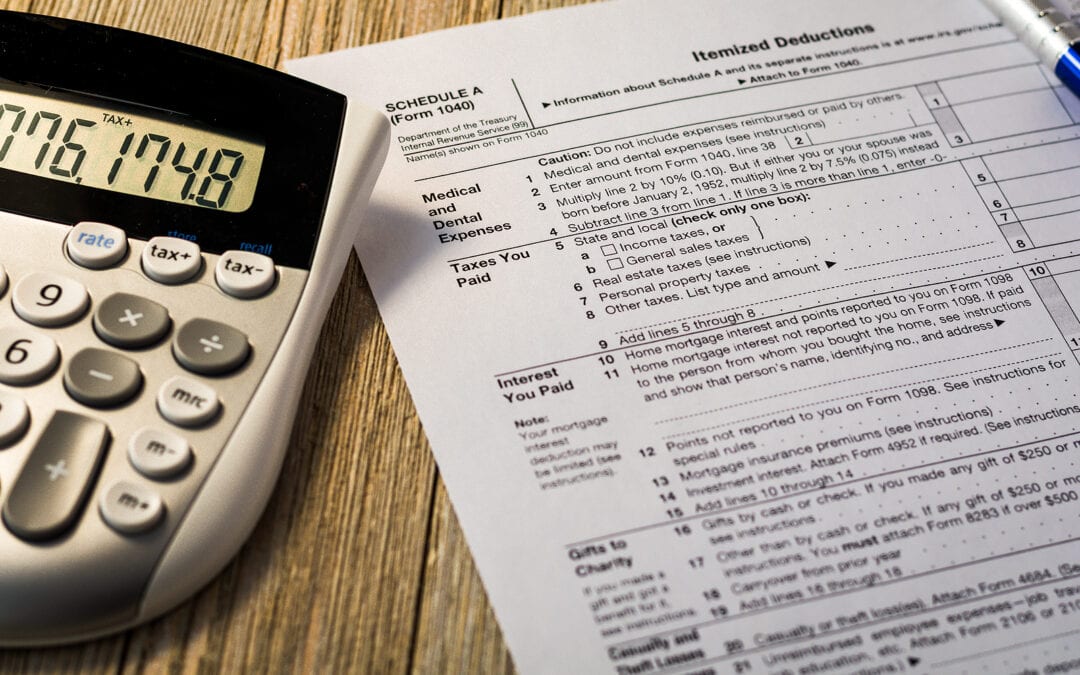When the standard deduction was increased a few years ago, it was a game-changer for income tax filers. It simplified filing taxes for most people and eliminated the need to itemize deductions when filing income taxes each year. For the 2020 tax filing season, the base standard deduction for married filing joint filers is $24,800, for single filers and married filing separately filers it is $12,400, and for head of household filers it is $18,650. In 2021, the base standard deduction for married filing joint will be $25,100, for singles and married filing separately it will be $12,550 and head of household will be $18,650. For some filers though, itemizing deductions is the better option. The goal is to use the deduction that will lower your income the most, which then decreases the amount of income tax you will owe.
The Nuts and Bolts of the Standard Deduction.
The IRS permits everyone to take the standard deduction to file income taxes. Even if you have other deductions such as loss on stocks sold, income tax credits, or stimulus money credits, you still have the option to take the standard deduction. The standard deduction lowers your tax liability because it lowers the amount of income you pay taxes on. The amount of the standard deduction is determined by filing status and may be higher than the base if the taxpayer is blind or over 65.
- For single filers under 65, the standard deduction is $12,400.
- If the filer is blind or over 65, the deduction increased to $14,050. For single filers 65 or older and blind, the standard deduction is $15,700.
- If you qualify to file as head of household and are under 65, the standard deduction is $18,650. If you are blind or over 65, the deduction rises to $20,300. For head of household over 65 and blind, the deduction is $21,950.
- For married filing joint filers where both are under 65, the standard deduction is $24,800. If either spouse is blind, the deduction is $26,100, and $27,400 if both spouses are blind. If either spouse is over 65, the deduction is $26,100 and if both spouses are over 65, it’s $27,400. If either spouse is over 65 and blind, the deduction is $27,400, but if both spouses are over 65 and blind, the deduction is $28,700.
- If you file as married filing separately, be aware that if one spouse chooses to itemize, the other spouse cannot claim the standard deduction. Both spouses must either itemize or take the standard deduction. The deduction amount for married filing separately is the same as those filing single.
- If you can be claimed as a dependent by another person, your standard deduction will be reduced.
When to Claim Standard and When to Itemize.
The litmus test: It’s simple – if the standard deduction is more than your itemized deductions, take the standard deduction. Likewise, if your itemized deductions are greater than the standard deduction, you need to itemize.
Run this fast test. Many automatically take the standard deduction because simplifies things, it is painless, and it is a breeze. However, it’s to your benefit to take a few minutes and see if there is an advantage to itemizing.
Add up your mortgage interest from the mortgage interest statement sent to you by your mortgage lender (IRS Form 1098), property taxes paid, state income taxes and charitable donations. Do these add up to more than your standard deduction? If yes, itemize. If not, take the standard deduction.
Calculate your tax bill with the standard deduction and then using your itemized deduction total. If you are signed up with an online tax filing service or use tax filing software, it could be to your advantage to take the time to investigate and document all the itemized deductions you can take while preparing your taxes. Both give you the ability to calculate your taxes using the standard deduction and with your itemized deductions. You may discover it was worth the time to itemize your deductions because they turned out to be greater than the standard deduction.
Contact a tax professional, like the tax experts at The Becerra Group, to help you determine if you should itemize your deductions or take the standard deduction. We may be able to guide you in locating deductions you did not know had or were not aware you could take when itemizing for your income taxes. Call us at 505-462-9090 (NM) or 830-254-4708 (TX), or click here and complete our online contact form. We are here to serve all your tax, accounting, and bookkeeping needs.

